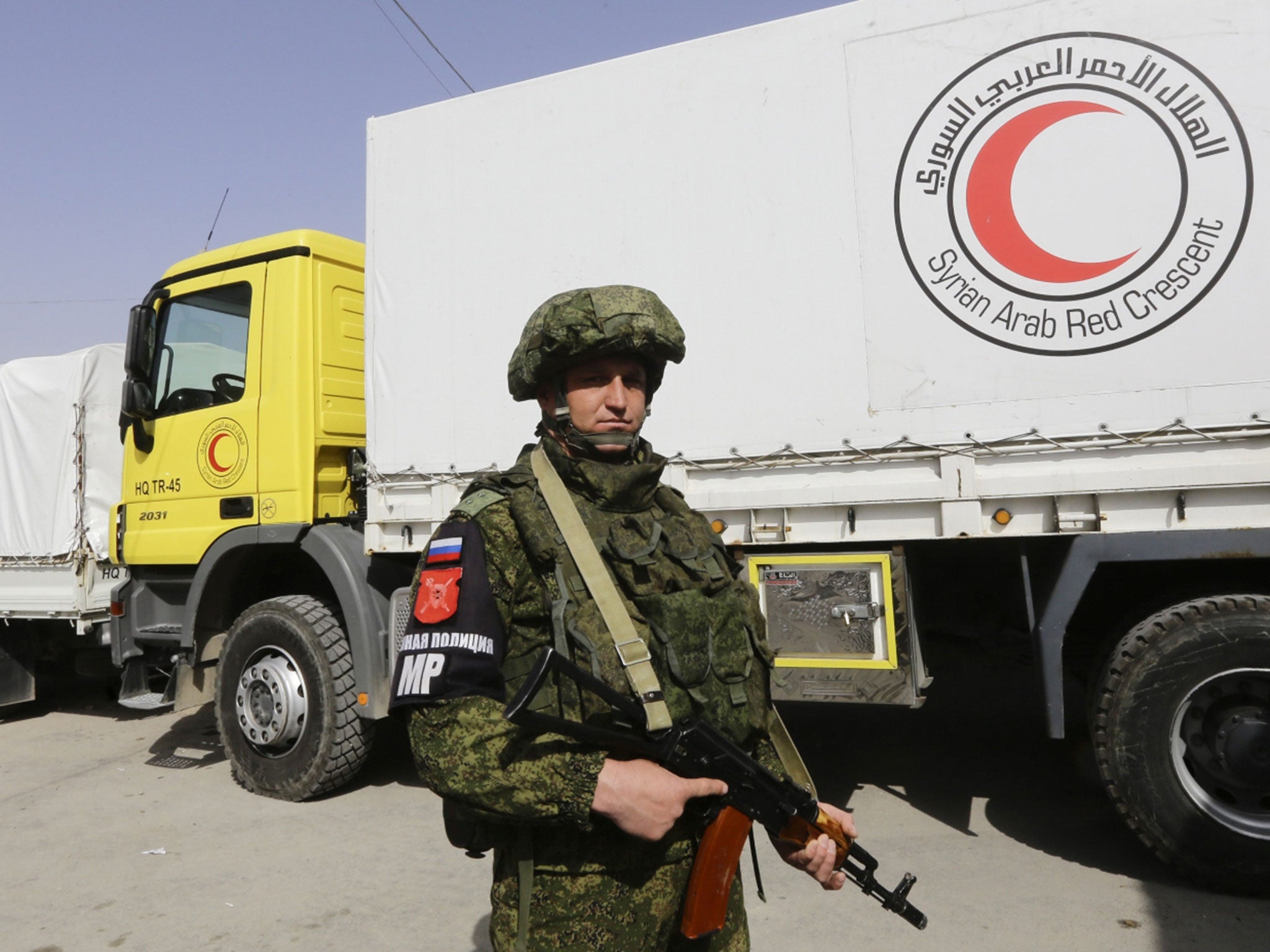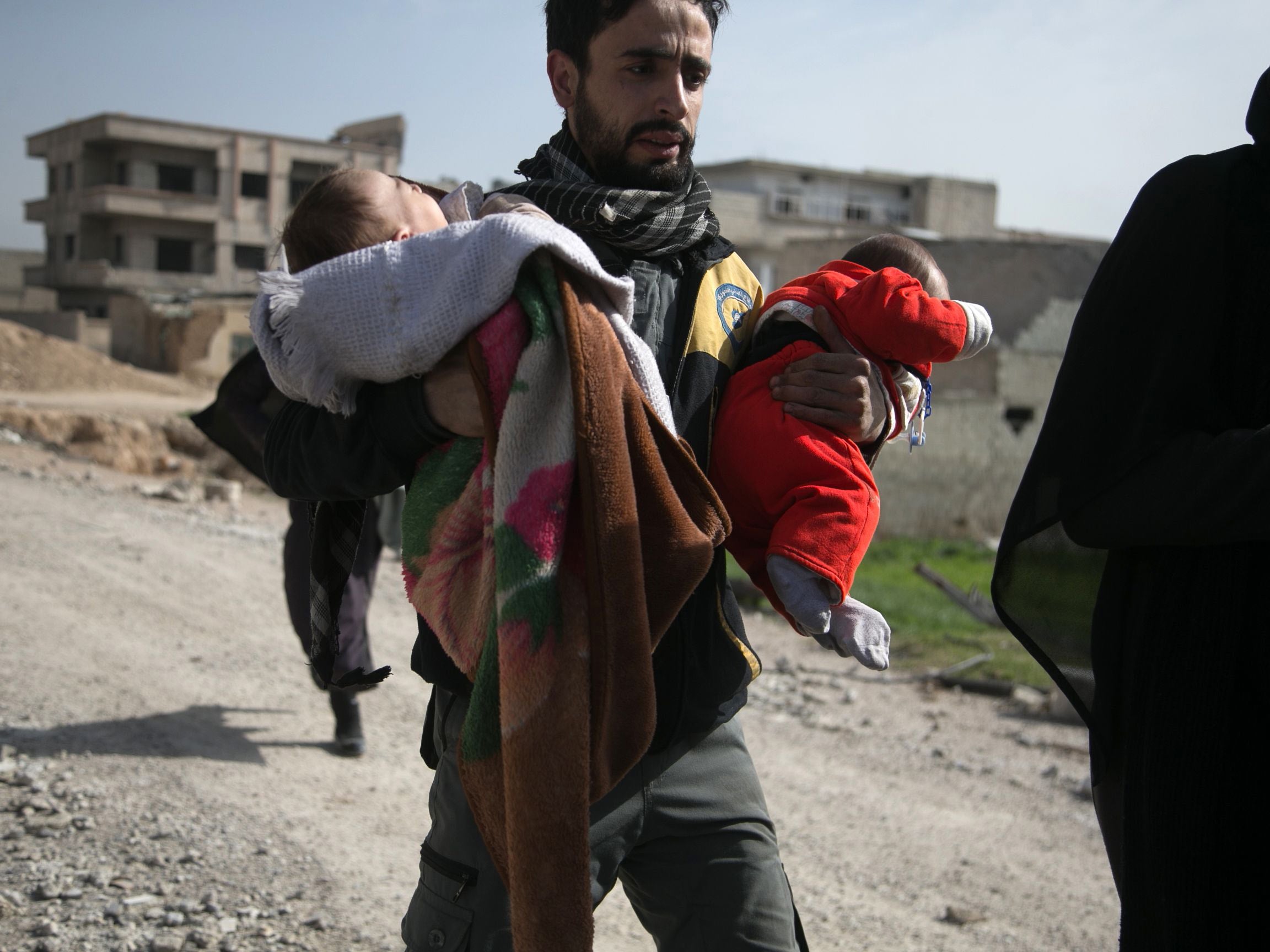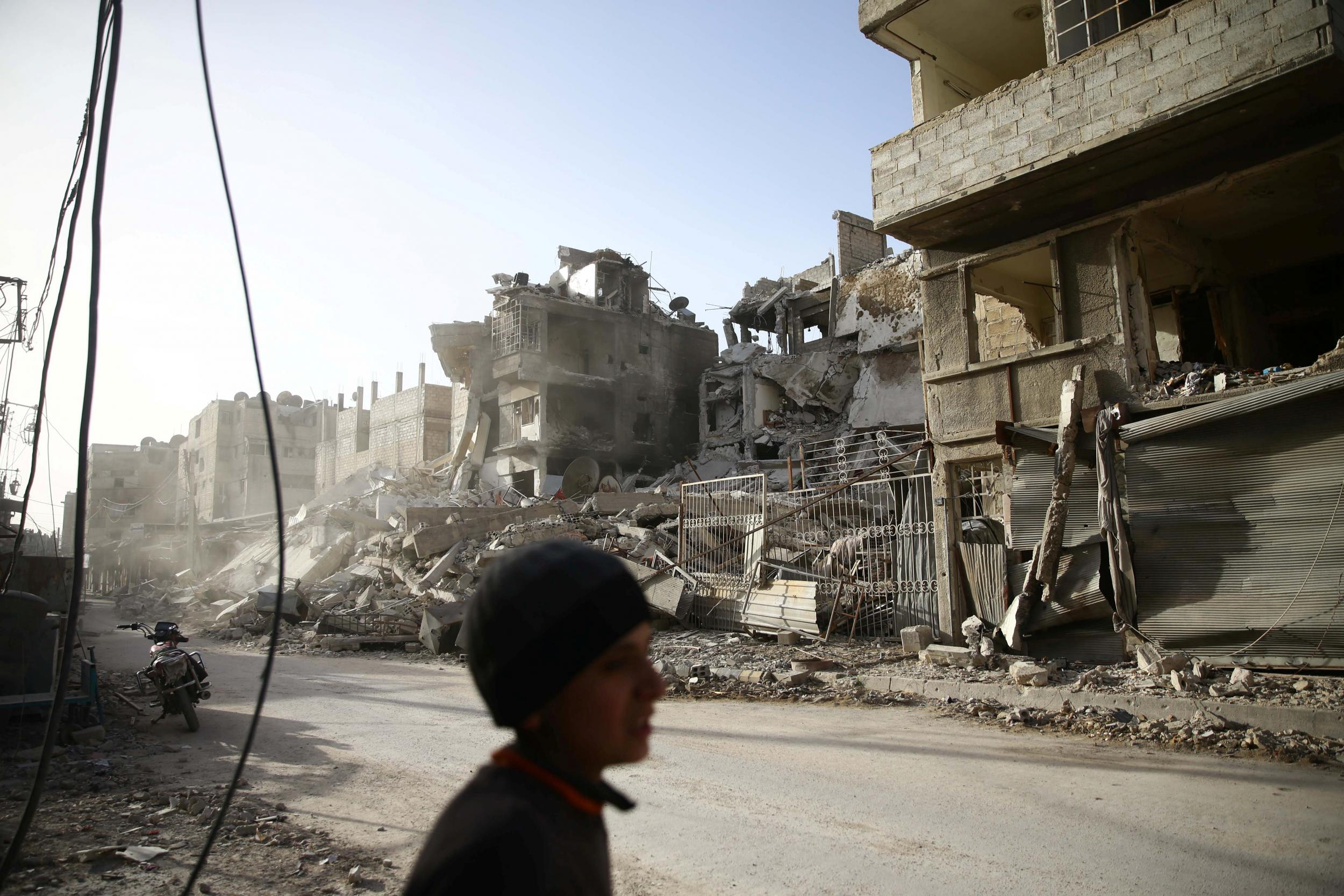Eastern Ghouta: Assad forces strip trauma kits and surgical supplies from aid convoy meant for desperate civilians
Regime ground offensive captures one-third of besieged enclave in manoeuvre to cut it in half

Your support helps us to tell the story
From reproductive rights to climate change to Big Tech, The Independent is on the ground when the story is developing. Whether it's investigating the financials of Elon Musk's pro-Trump PAC or producing our latest documentary, 'The A Word', which shines a light on the American women fighting for reproductive rights, we know how important it is to parse out the facts from the messaging.
At such a critical moment in US history, we need reporters on the ground. Your donation allows us to keep sending journalists to speak to both sides of the story.
The Independent is trusted by Americans across the entire political spectrum. And unlike many other quality news outlets, we choose not to lock Americans out of our reporting and analysis with paywalls. We believe quality journalism should be available to everyone, paid for by those who can afford it.
Your support makes all the difference.An aid convoy intended to bring food and basic medicines to desperate Syrian civilians in Eastern Ghouta was stripped of vital medical supplies as it entered the besieged rebel-held suburbs.
Syrian government authorities removed most medical supplies from the trucks, preventing trauma kits, surgical supplies, insulin and dialysis equipment from reaching the battered enclave of 400,000 people, the World Health Organisation (WHO) said.
Eastern Ghouta has been under siege by government forces since 2013 and the United Nations feared people inside were running out of food and medicine even before a major assault began two weeks ago.
“The health supplies provided by WHO in these convoys are selected after extensive consultations with health partners working in these areas and are desperately needed to save lives and reduce suffering,” a WHO spokesperson told The Independent.
The convoy consisted of 46 truckloads of heath and nutrition supplies, along with food for 27,500 people, the UN’s Office for the Coordination of Humanitarian Affairs said.
It is the first aid delivery to reach the region in nearly three weeks.
Syrian President Bashar al-Assad has vowed to continue his military push into Eastern Ghouta, the biggest opposition stronghold remaining near the capital, Damacus.
He said the offensive did not contravene the five-hour ceasefires arranged each day by his main ally, Russia.
The Syrian Observatory for Human Rights, a UK-based war monitor, said over 700 people had died in two weeks of intense bombardment, many of them children.
Pro-Assad forces have made sudden advances into Eastern Ghouta in recent days, capturing a third of the area, the office said, bringing them closer to cutting it in two.
In comments broadcast by state television on Sunday, Mr Assad dismissed Western statements about the humanitarian situation in Eastern Ghouta as “a ridiculous lie”.
Moscow made a similar case at the UN Human Rights Council in Geneva. “The media atmosphere is saturated with lies,” Russian diplomat Alexei Goryaev said.
“As a result we see debates and votes that are entirely removed from the actual situation on the ground.”

Russia’s military said the rebels in control of Eastern Ghouta had agreed to let civilians leave in return for aid.
Both Assad and Russia have repeatedly accused the rebels of stopping civilians from fleeing Eastern Ghouta, a charge denied by the insurgents, who say people there fear arrest, torture or forcible conscription if they cross into government areas.

Also on Sunday, the United States made its strongest accusation to date about Moscow’s complicity in civilian deaths in Syria, saying Russian aircraft flew bombing missions over Eastern Ghouta in defiance of a 30-day United Nations ceasefire.
“Russia has gone on to ignore the UN ceasefire’s terms and to kill innocent civilians under the false auspices of counter-terrorism operations,” the White House said in a statement.
It called on Mr Assad to “immediately cease targeting medical infrastructure and civilians”.
Russia says the UN ceasefire does not apply to rebel groups in Eastern Ghouta, who Moscow considers members of terrorist groups banned by the UN.
The United Nations high commissioner for human rights said on Friday that Syrian government air strikes on Eastern Ghouta and shelling from the rebel-held zone into Damascus probably constituted war crimes.
Join our commenting forum
Join thought-provoking conversations, follow other Independent readers and see their replies
Comments